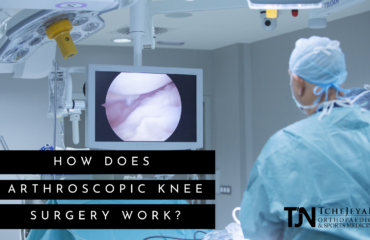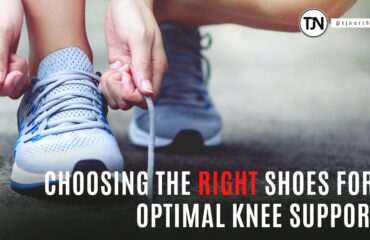There’s no question that knees get a lot of use: walking, climbing stairs, squatting, kneeling, running, and even sitting and standing. And if you play sports, work out, or dance, you can add things like jumping, pivoting, juking, and sprinting to the list.
Knee joints have lots of parts. Bones, tendons, ligaments, and muscles all work together to enable movement and provide stability and support. But if you move in the wrong way, you can injure one or more of these tissues.
One knee injury that is fairly common, but very painful, is a torn knee tendon. And while it often happens as a result of one bad movement, the fact is that a tendon that gets torn is often already weakened by the cumulative stresses that have taken their toll on the tendon over time. So how do you know if you have actually torn a knee tendon, and not just strained it? Here are some indicators.
A Popping Sensation or Sound
Tendons are bands of fibrous tissue that connect your bones to your muscles. When your muscles are toned and nicely warmed up, they absorb most of the stresses on your knee. But if not, the stresses of movement can transfer to your tendons. This can weaken your tendons, and, if a movement is drastic enough, even tear one.
When you tear a knee tendon, you may feel a popping sensation and possibly even hear an accompanying sound. Typically this is followed by intense pain, and it becomes very difficult to move your knee. However, the popping sound alone is not a foolproof method of diagnosis: not every popping sensation you feel around your kneecap will mean you have a torn tendon.
For example, if you tear your anterior cruciate ligament (ACL) you will also get a popping sensation. Unlike tendons, however, ligaments usually connect bone to bone, and the purpose of the ACL is to prevent your knee from moving excessively by keeping the bones in a fixed relationship to one another.
But whether you have a torn tendon or a torn ligament, they both cause intense pain and both need medical attention. So if you have experienced an injury in which you felt or heard a popping, and it is accompanied by severe pain, you need to seek medical attention to determine the seriousness and extent of your injury.
Instability
While numerous medical issues, both chronic and acute, can cause instability in the knee joint, tendon tears are a common culprit. Both tendons and ligaments help keep your kneecap in place and your other bones in the proper places as your joint shifts while you move. When tendons or ligaments give way, your knee joint becomes too “wobbly”, and it will cause you to be unstable.
If you feel unstable or off balance when you walk, stand, or crouch, or if you actually fall because of an inability to maintain balance, you probably have an injured tendon or ligament. In particular, it will be painful when you move, and your knee joint itself may shift around uncomfortably.
Pain
While any injury causes pain, in many cases, the pain will subside after a while. However, with a more serious injury like a tendon tear, the pain will not simply go away. If a knee tendon is torn, you will not be able to move or touch the knee, or let it bear any weight, without intense pain. If you touch the area where the pain is, it may feel “crunchy”, and it may also feel hot.
A Dent, Soft Spot, or Other Deformity
While both tendon strains and tears can cause pain, swelling, redness, and stiffness, tears are often accompanied by bruising and some form of a physical deformity. For example, when you press on the front of your knee, just below the kneecap, you should feel a taunt tendon. However, if you have suffered a tear of your patellar tendon, you will be able to notice a dent or softness where there should be a strong tendon. You may also notice that something is out of place. For example, if you tear a tendon connected to your kneecap, you may notice that the kneecap on your injured knee has moved to a different spot than in your uninjured knee.
If you recently injured your knee or worry that you may have torn a tendon, seeking medical care should be your next move. Contact Tchejeyan Orthopedics and Sports Medicine today for a consultation and to start your way on the road to recovery.




